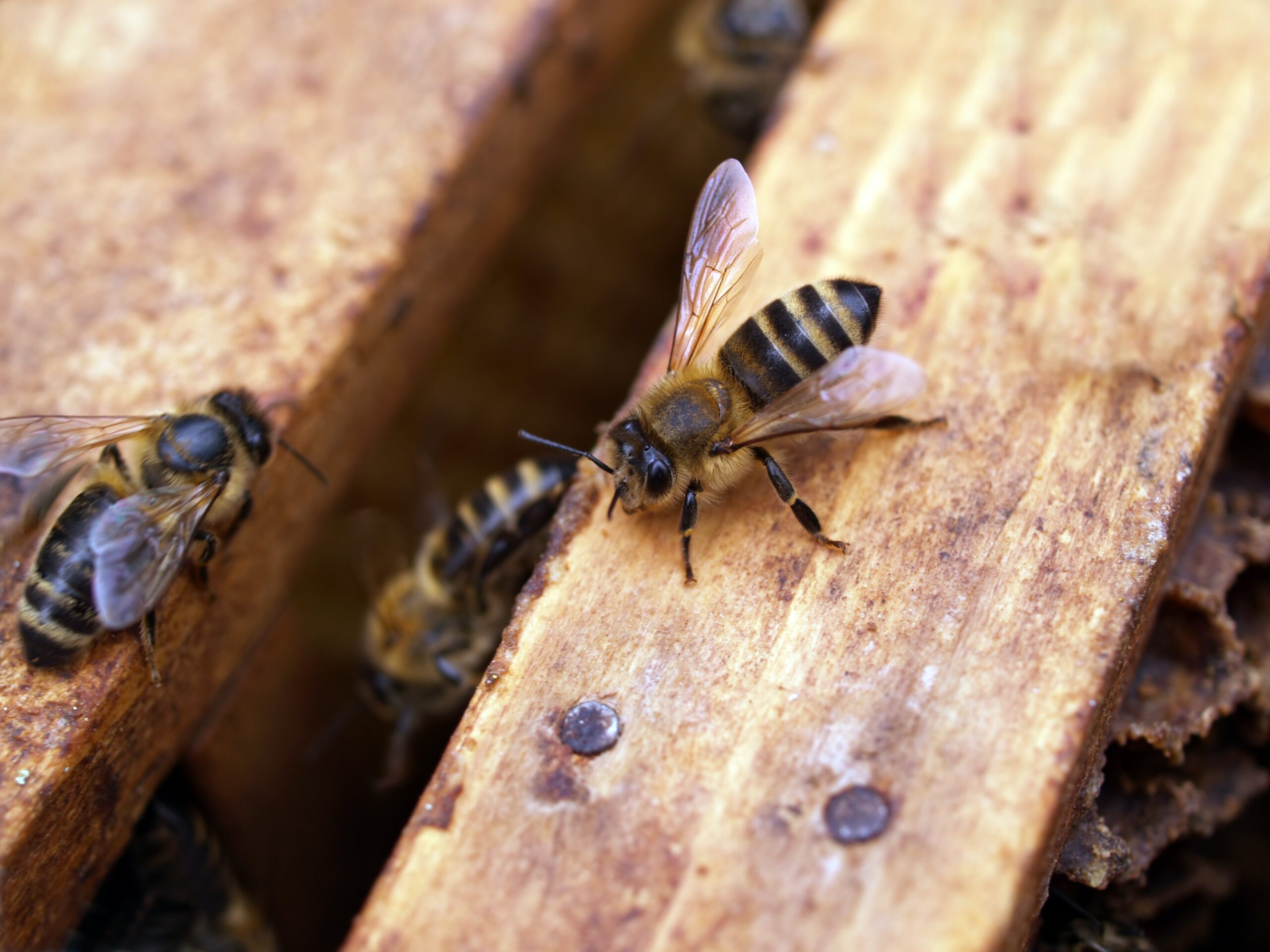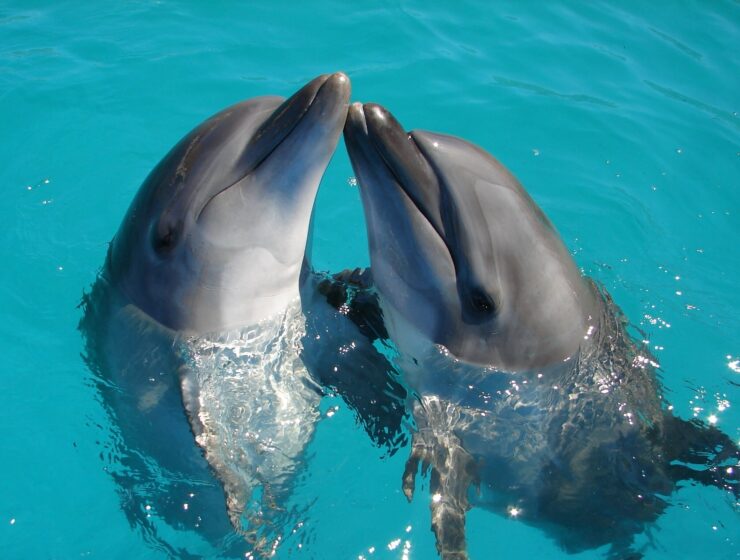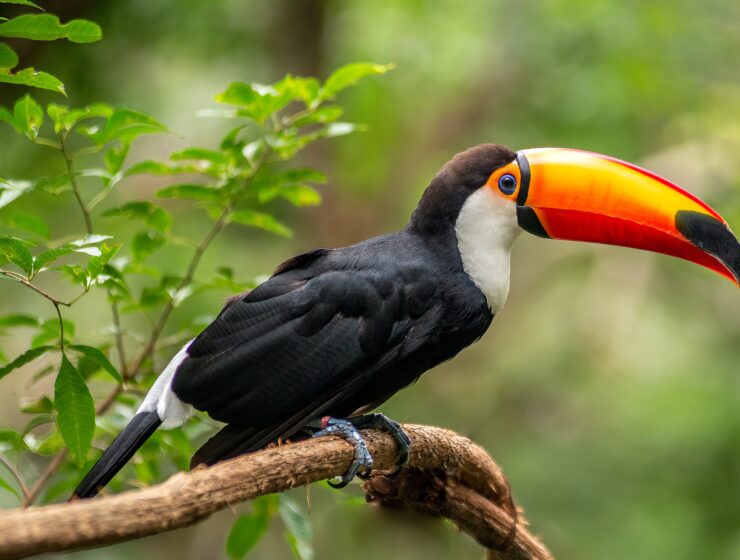Register here for Hive to Honey: A Live Beekeeping Journey.
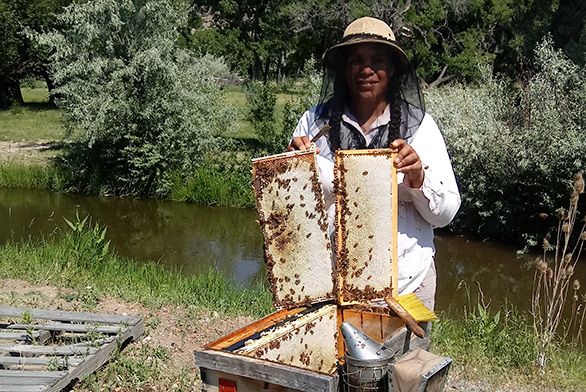
WHEN: 9/21/23 at 12:00pm ET.
Introduction
Join Melanie Kirby as you embark on an exciting virtual journey to the New Mexico, where you will explore the fascinating world of bees. Melanie is an artist, conservationist, journalist, and National Geographic Explorer. She’s also a member of Tortugas Pueblo from Southern New Mexico. From the Big Island in Hawaii to central Florida, to Michigan, Melanie has worked for multiple commercial queen bee rearing operations throughout her career. In this blog post, we will introduce you to these tiny, industrious insects that play a vital role in maintaining Earth’s ecosystems.
Why is beekeeping important?
- POLLINATION POWERHOUSES: At the heart of the bees’ importance is their role as pollinators. Pollination is defined as the transfer of pollen from the anther of a plant to the stigma of a plant, which allows later production of seeds.1 Bees pollinate a wide array of plants, including many of the nuts, fruits, and vegetables that you enjoy at home. Without bees, our crop yields would be lower, which would compromise our food supply and reduce food diversity.
- BIODIVERSITY PROTECTION: Beekeeping works to ensure the reproduction of different plant species, thus preserving biodiversity. Pollination carried out by bees upholds the genetic diversity of plant populations, which ensures ecosystem resilience and diversity.
- HONEY PRODUCTION: Arguably the most delicious byproduct of beekeeping is honey. Honey is both a delectable natural sweetener and provider of several health benefits. Honey has vitamins, enzymes, and antioxidants that support our immune system. The considerable global demand for this golden delicacy is met by sustainably producing honey.
- CONSERVATION: Like other industries that provide our food, such as livestock and agriculture, it is important that beekeeping is carried out through responsible practices that aim to prevent environmental destruction, harm to the animals, and harm to humans. Conscientious beekeepers that follow these practices are often at the forefront of conservation efforts. They advocate for reduced use of pesticides, protection of natural habitats, and preservation of bee-friendly plants. Beekeepers actively contribute to preserving our ecosystems by caring for such vital elements of our natural world.
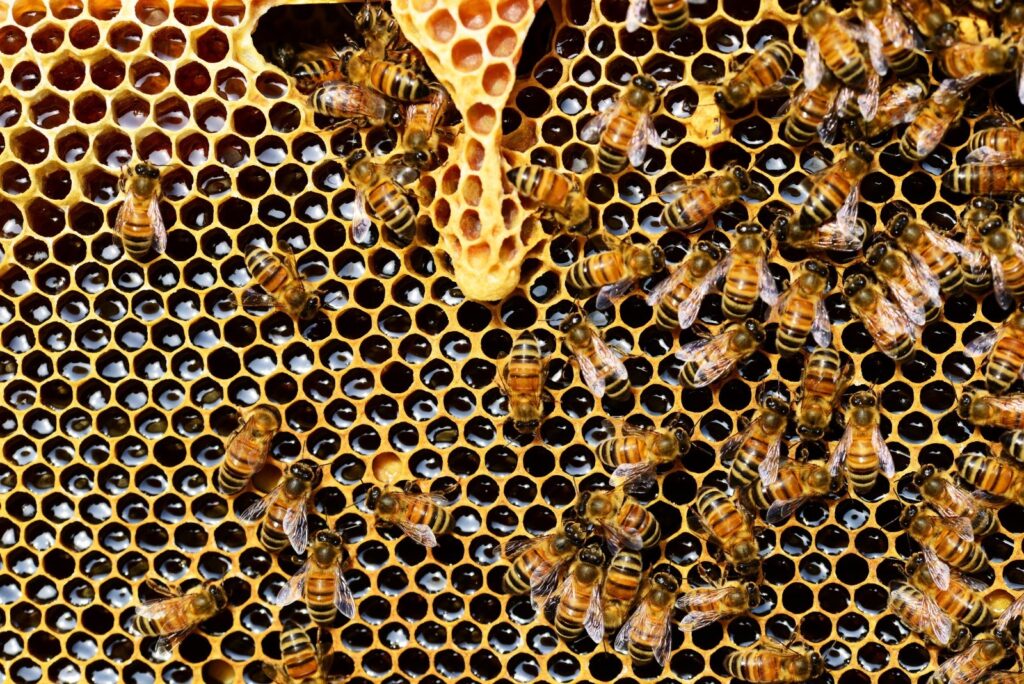
Live Beekeeping with Melanie
During our virtual field trip, you will have the opportunity to witness live beekeeping with Melanie. She understands the importance of connecting nature with humanity through narratives and storytelling. By taking you on a journey through the vibrant world of bees, Melanie will give insight into their life cycles, behaviors, and the inner workings of beehives. Her passion for bees is infectious, and after this field trip, you will be in awe of these small but mighty insects.
A Bee-con of Hope
Melanie’s mission at Zia Queenbees includes enhancing bee habitats and breeding more resilient and healthy bee populations. Bees face many threats today, such as exposure to pesticides, loss of habitat, and changing climates. Beekeepers such as Melanie serve as a beacon of hope for these fascinating pollinators.
Conclusion
Beekeeping is not just a hobby; it connects us to the natural world and sustains our ecosystems, thus maintaining our way of life. Bees play an essential role in pollination, biodiversity, food production, and environmental conservation. Understanding and supporting beekeeping is a substantial step toward creating a more interconnected, sustainable, and healthy world.
Register here for Hive to Honey: A Live Beekeeping Journey.
WHEN: 9/21/23 at 12:00pm ET.

